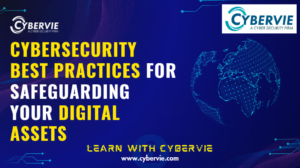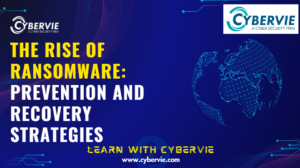
Cybersecurity is the practice of protecting systems, networks, and programs from digital attacks. These cyberattacks usually aim to access, change, or destroy sensitive information; extorting money from users; or interrupting normal business processes. What are the myths about Cybersecurity? Decode the myths about cybersecurity and know all the facts.
Must know Cyber Threats:-
- Firstly, hackers can sell confidential data to people with malicious intent. This is the reason companies suffer huge economic losses.
- Secondly, any attack on the customer database leads to leakage of personal data. Spammers and third parties buy this leaked data and now have access to the personal data of customers. This results in the customers losing trust in the organization.
- Thirdly, attackers may install ransomware on your system and will extort a fortune from you to recover your system.
- Finally, DDoS attacks may also lead to a loss in brand reputation thus reducing the search engine ranking.
There are various myths related to Cybersecurity applications that can lead to a leak in sensitive data only if you continue to believe them.
1
- Myth: Only certain Industries are prone to Cyberattacks.
- Fact: Any industry which has an online presence is a potential Cybercrime victim.
Data is worthy. Therefore, companies assume that they do not have any information ‘worthy’ for hackers to steal. Hackers can steal and steal any data, personal information or financial information. A recent example is Zoom zero-day hack where hackers sold data over the dark web and Truecaller user details to third parties.
2
- Myth: Using Anti-virus/Anti-Malware software is enough
- Fact: Software can’t protect from all cyber-risks.
Anti-virus and Anti-Malware are essential components for providing security. A comprehensive plan of security also includes employee awareness programs, Cyberthreat analysis, and Security as a Service scheme, as provided by www.cybervie.com.
3
- Myth: Small and Medium scale businesses are not at risk and will not be targeted by hackers.
- Fact: Any business which has sensitive information and an online presence is vulnerable to an attack.
As per the 2018 Verizon Data Breach report, 58% of the total victims were small businesses. Mostly, large businesses often get media attention when hackers attack those. It doesn’t convey that the risks of a cyberattack on small and medium businesses can be overlooked.
4
- Myth: Someone outside the organization can facilitate an attack.
- Fact: Insiders can also facilitate an attack and it could be difficult to find them.
Someone must check any information that each employee has access to. Moreover, one must monitor outsider threat along with insider threats and there must be a system in place to avoid such threats.
5
- Myth: A strong password will suffice.
- Fact: Although a strong password is important yet it can be compromised.
Strong passwords are like the first step to achieve Cybersecurity. Also, organizations must check which employees have an access to confidential information and whether that information is meant for them. It is not uncommon to share the same password with all the employees in various departments. Often, admin rights may not be restricted to a few persons and it can lead to compromise in the security of the network.
6
- Myth: If a WiFi has a password, it is safe.
- Fact: All public WiFi can be compromised even with a password.
One should not use Public WiFi for the exchange of confidential information. Therefore, companies must invest in VPN for their employees.
7
- Myth: BYOD (Bring Your Own Device) is secure for use at work.
- Fact: Any smart device can compromise the security of the entire network.
Employees using personal devices for work-related purposes must follow the protocols same as for work-related devices. Unprotected personal devices can lead to a breach of information.
8
- Myth: 100% Cybersecurity is achievable.
- Fact: New threats emerge every day, Cyber preparedness is ongoing.
Every day, new threats emerge and engineers devise methods to tackle them. 100% Cybersecurity is a hypothetical statement. Continuous monitoring of systems, employee awareness, internal audits, threat analysis etc. are very important to keep your network and your organization safe.






